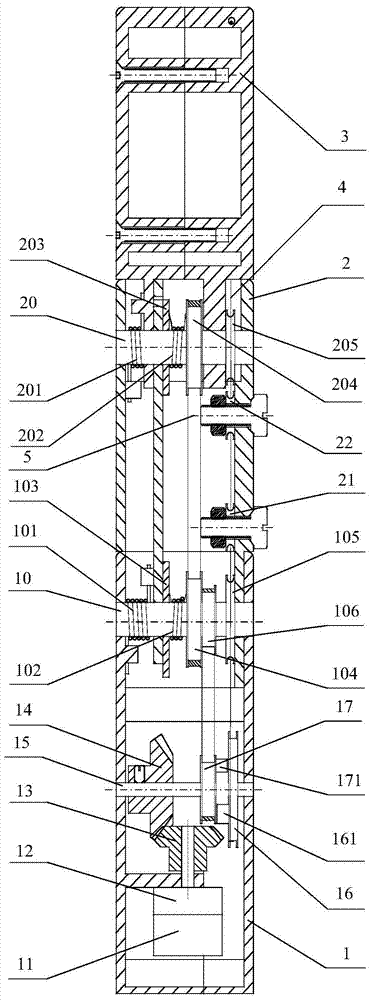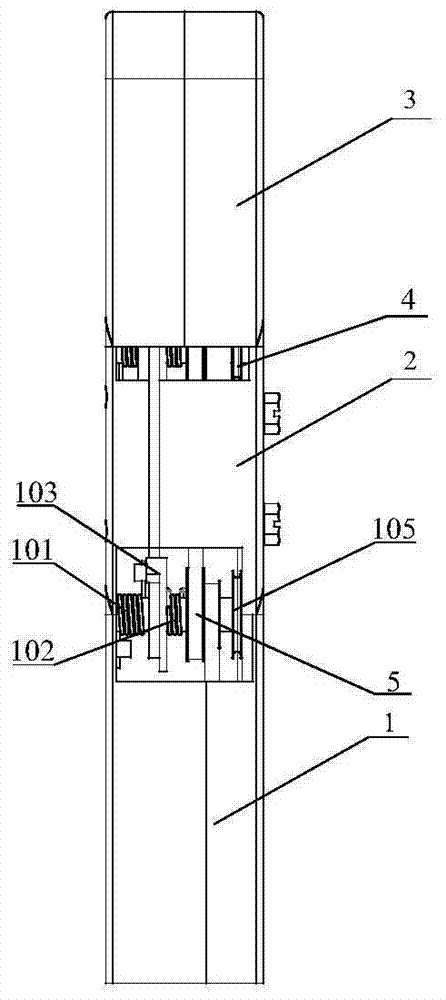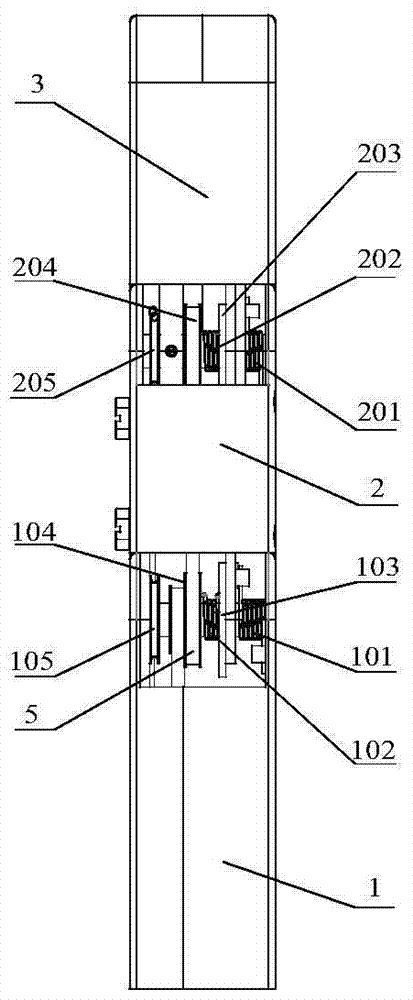Wheeled collaborative locking linkage adaptive robot finger device
A robot finger, self-adaptive technology, applied in the directions of manipulators, joints, chucks, etc., can solve problems such as instability, fingers quickly colliding with objects, squeezing objects, etc., to achieve low manufacturing and maintenance costs, fast and stable grasping process, preventing The effect of rebound instability
- Summary
- Abstract
- Description
- Claims
- Application Information
AI Technical Summary
Problems solved by technology
Method used
Image
Examples
Embodiment Construction
[0046] The specific structure, working principle and working process of the present invention will be further described in detail below in conjunction with the accompanying drawings and embodiments.
[0047] The wheeled cooperative locking linkage adaptive robot finger device provided by the present invention includes a motor, a reducer, a first transmission mechanism, a tendon rope, a rope member, N finger segments, N-1 joint shafts, and N-1 Knuckle wheel and N-1 knuckle springs; the motor is fixedly connected to the first finger segment, the output shaft of the motor is connected to the input shaft of the reducer, and the output shaft of the reducer is connected to the first transmission mechanism The input end is connected; the output end of the first transmission mechanism is connected with the drawstring part, and the drawstring part is fixedly connected with one end of the tendon rope, and the other end of the tendon rope is fixedly connected with the last finger segment;...
PUM
 Login to View More
Login to View More Abstract
Description
Claims
Application Information
 Login to View More
Login to View More - R&D
- Intellectual Property
- Life Sciences
- Materials
- Tech Scout
- Unparalleled Data Quality
- Higher Quality Content
- 60% Fewer Hallucinations
Browse by: Latest US Patents, China's latest patents, Technical Efficacy Thesaurus, Application Domain, Technology Topic, Popular Technical Reports.
© 2025 PatSnap. All rights reserved.Legal|Privacy policy|Modern Slavery Act Transparency Statement|Sitemap|About US| Contact US: help@patsnap.com



